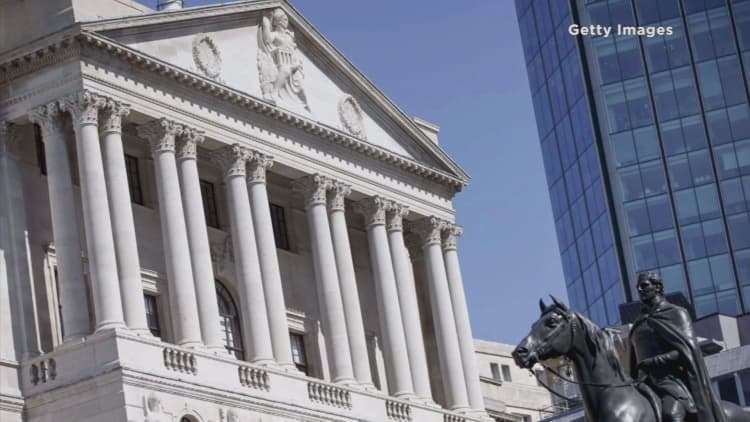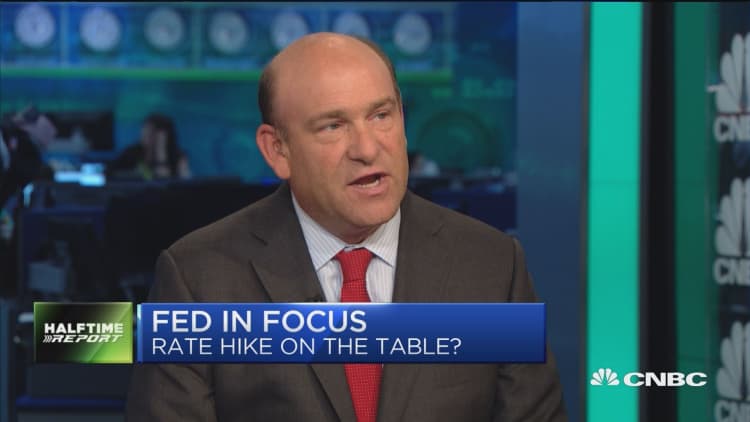The Bank of England's new bond-buying programme ran into trouble on its second day of operations on Tuesday, as pension funds and insurance companies struggling with a deepening funding crisis refused to sell gilts to the central bank.
Investors rejected the BoE's attempt to buy £1.17bn of long-dated government bonds in spite of receiving prices significantly above market levels and offered to sell just £1.12bn.
Last week, BoE governor Mark Carney unveiled a comprehensive package of monetary-easing measures designed to cushion the economy from an anticipated downturn following the UK's vote to quit the EU. It surprised financial markets by its breadth and led to a further collapse in government bond yields as investors bet on years of economic stimulus.
More from the Financial Times:
UK and eurozone yields hit record lows
Sterling loses closely watched $1.30 mark
UK's easing wins investor plaudits for now
The auction shortfall triggered a sharp drop in gilt yields as investors questioned whether the BoE would find enough willing sellers to complete the revived £70bn quantitative easing scheme.
"The fact that their first attempt to buy long-dated gilts has failed raises significant question marks," said Mitul Patel, head of interest rates at Henderson Global Investors.
BoE officials are confident future auctions will be covered in full and pointed out that the shortfall was small and that trading in markets is thin in August. A statement will be released at 9am on Wednesday morning.




However, investors say the BoE is likely to run into the same problem at its next auction of long-dated gilts as pension funds grapple with severe funding mismatches.
"The Bank of England fell £50m short in its gilt purchase target for today, and even then only secured this much by paying well above market price," said Darren Bustin, head of derivatives at Royal London Asset Management. "Short term, to meet its QE targets the Bank may seek to target bonds less prized by pension schemes."
Benchmark 10-year gilt yields have fallen from 2 per cent to a new low of 0.56 per cent this year, opening up record shortfalls in UK pension schemes which use bond yields to calculate liabilities.
The combined deficit of the UK's 6,000 private-sector pension schemes rose to a new high of £408bn last month, according to the Pension Protection Fund, up from £383.6bn in June.
"Record lows in gilt yields continued to put pressure on pension scheme funding," said a spokesperson for the Pension Protection Fund. "Total liabilities increased in cash terms but the ratio of assets to liabilities is still above the all-time low of 76.4 per cent in May 2012."
The PPF calculates deficits on the basis of reduced benefits it would pay to members with final salary-type pensions if their employer failed and could not meet funding promises.
Before the Monetary Policy Committee made its announcements last week, several commentators suggested that focusing new gilt purchases on shorter-maturity government bonds could be beneficial. Selling long-maturity bonds and buying short-maturity ones would be the reverse of the Federal Reserve's "Operation Twist" in 2011 and would reduce yields on shorter-maturity gilts, putting downward pressure on fixed-term mortgage rates.
Such a policy "could have significant financial market benefits," said Tim Davis of Fathom Consulting, and would "avoid the negative repercussions on pension funds".

